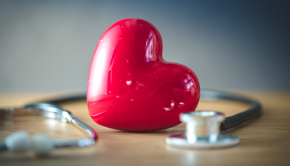Men Have Hormone Imbalances, Too
by Doug Pucci
When people think of hormonal imbalances, they usually assume women are the sufferers. But an increasing number of men now have hormone imbalances, as well; the most typical being high estrogen and low testosterone.
Today’s lifestyles and environmental toxins, including hormones in some of the foods we eat, are major contributors to hormonal imbalances. Because of this, hormonal changes that normally wouldn’t occur until mid-life are being seen in younger men (and young women, too) under the age of 35, and sometimes even in the teen years.
Some of the factors that contribute to hormone imbalances include: high carbohydrate diets, diets high in processed foods, chronic stress, which leads to adrenal fatigue, environmental chemicals, chemicals in personal care products, plastics, being overweight and overdoing endurance or cardio exercises.
Many men brush aside the symptoms of hormonal imbalances, accepting them as a “new normal” and not realizing they’re telling them that something is wrong. While it’s true that men’s testosterone levels decrease one percent per year after age 40, it’s the ratio of testosterone to estrogen that can get out of sync. In addition, hormonal imbalances typically don’t occur in isolation; hormones comprise a complex network that impacts upon and is impacted by other systems and organs in the body.
Here are some of the more common symptoms; those experiencing even just a couple of them should be tested: depression or anxiety, trouble sleeping, moodiness, low libido, night sweats, fatigue, poor energy, infertility, muscle weakness, trouble recovering from exertion or exercise and gaining weight in the breast, abdomen, or hip areas.
While a hormonal imbalance can be high estrogen and low testosterone, there are a myriad other possible contributing or overlapping health factors, including adrenal fatigue, thyroid problems, hypoglycemia and more, so there is no one single solution for every person. Products advertised to correct hormone imbalances or articles giving general advice could make matters worse by increasing the levels of a hormone we already have too much of, or by worsening a contributing health issue we’re unaware of.
We can, however, begin improving our overall health by adopting a healthier lifestyle: learning stress-reduction techniques, eliminating processed foods and added sugars, and getting regular exercise are all a good start on the journey toward optimal health.
A functional medicine doctor will do a comprehensive hormone test to find out exactly what’s out of whack and by how much. These tests are far more in-depth than the standard hormone tests given by conventional physicians, allowing the treatment to be customized to finely target specific issues. As each issue causing the imbalance is corrected, treatment will be modified and adjusted until the hormonal balance is restored. Patients will be surprised at the positive changes ythey see in many different aspects of health.
For questions or appointments, call 201-261-5430. Hear Dr. Pucci’s interview podcast at PlanetNJ.com or visit GetWell-Now.com and request an information packet.




























